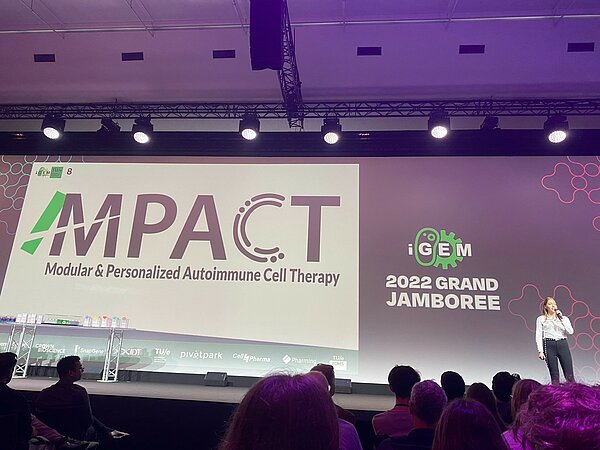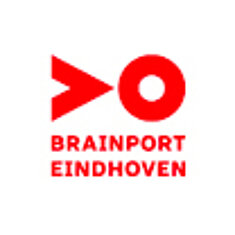Smart cells Eindhoven students triumph in Paris

Student team iGEM TU/e developed a therapy for autoimmune diseases, and won the world championship.
TU/e’s iGEM team has finished first at the Giant Jamboree in Paris. The students developed a cell therapy to treat autoimmune diseases such as ANCA-associated vasculitis, a chronic inflammation in blood vessels. Worldwide, 400 million people suffer from this type of diseases, which can be fatal. The Eindhoven team managed to beat the other two contestants from Hong Kong and France in the final of the undergrad category. It is the first time the student team has won the international competition.
iGEM is an international student competition in which participants try to solve a variety of problems using techniques from synthetic biology. A total of more than 350 teams from around the world participated this year in the three categories High School, Overgrad and Undergrad, including more than 180 Undergrad teams. They gathered in Paris this year for the annual Giant Jamboree. During this event, the teams present their work to a jury and a 4,000-strong audience.
“We are extremely proud of this result,” says team leader Jolien Marcelis. “It is the first time we have made it to the finals of iGEM. To then go and win the Grand Prize, that is really awesome!”.
In addition to the Undergrad category, iGem TU/e also took first place in the Therapeutics category, and won four of the sixteen other awards: Best Integrated Human Practices, Best Model, Best Supporting Entrepreneurship and Best Presentation.

ANCA vasculitis
The iGem team from TU/e, which consists of eight Biomedical Engineering students and one from Industrial Design, has worked hard in recent months to develop a therapy for ANCA vasculitis (AAV), an autoimmune disease in which the wall of blood vessels becomes inflamed.
As a result, underlying organs are deprived of adequate oxygen, causing them to function less or even die completely. The disease is life-threatening in severe cases. Worldwide, 400 million people suffer from immune disorders, 1 million of whom suffer from AAV.
Current treatments of AAV are based on drugs that suppress the immune system. The problem is that these drugs are non-specific, which causes unpleasant side effects. Moreover, they are expensive and not always effective.
Cell therapy
iGEM TU/e developed a therapy that uses human cells. These cells are manipulated in such a way that they are able to detect the antibodies and administer the anti-inflammatory interleukin-10 (IL-10).
Ideally, a single administration of these endogenous cells into a patient’s bloodstream would be enough to reduce all inflammatory symptoms. And that would have huge health benefits, the team says. Not only for people suffering from ANCA-associated vasculitis, but due to the adaptability of the system, also for patients suffering from other autoimmune diseases.
The iGEM team also won the audience award at the TU/e contest earlier this year. You can watch their pitch here.
